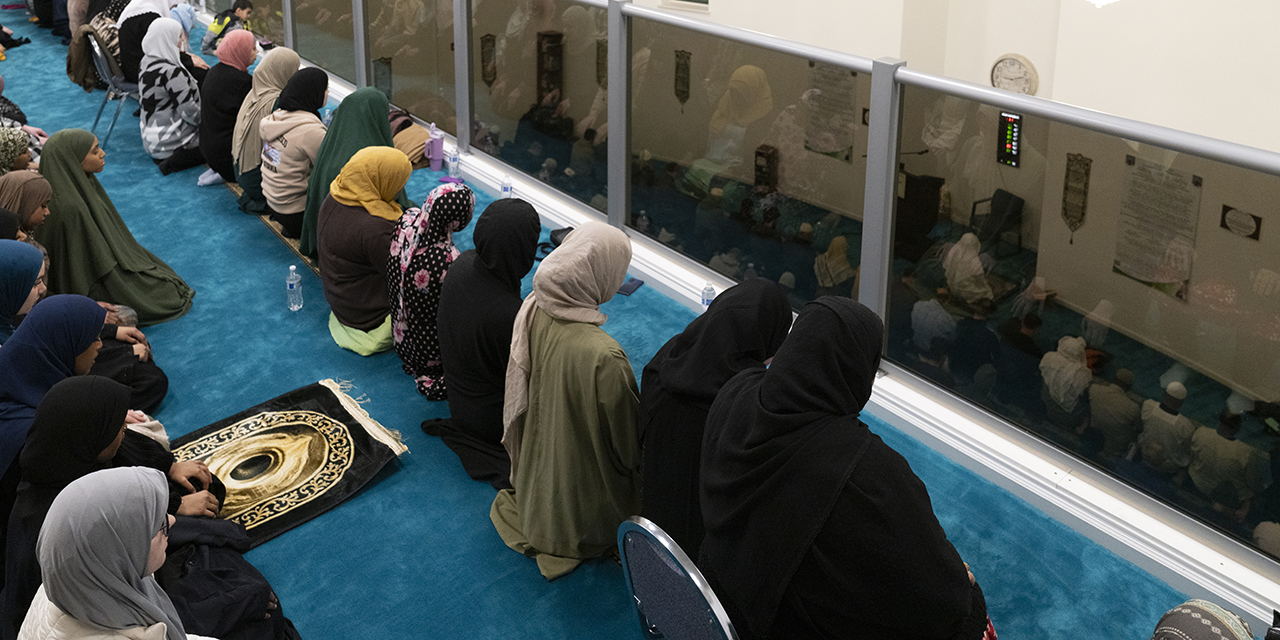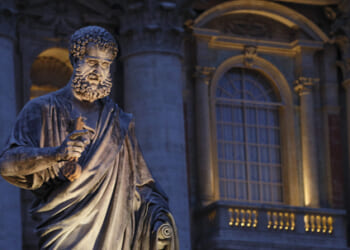
For veterans of the Muslim American civic scene, it is no surprise that the California chapter of the Council for American Islamic Relations (CAIR) is having more legal problems. The organization is reportedly facing scrutiny over the handling of $7.2 million in taxpayer funds. CAIR’s national headquarters just avoided a potentially revealing legal discovery process by settling a lawsuit with a former board member who alleged questionable foreign-funding practices.
CAIR’s legal and ethical troubles are extensive. They include its 2007 designation as an unindicted co-conspirator in a terrorism-financing case, the FBI’s 2009 decision to suspend formal cooperation with the organization, and the IRS’s suspension of CAIR’s nonprofit status for repeated failure to file required tax returns.
Finally, a reason to check your email.
Sign up for our free newsletter today.
Muslim Americans deserve better. Our faith calls us to pursue justice, contribute to our communities, and live with integrity. Yet too often, self-described Muslim advocacy groups like CAIR distort that message—casting us as perpetual victims rather than engaged participants in American life. In doing so, they not only misrepresent the priorities of everyday Muslims but also fuel the very Islamophobia they claim to oppose.
CAIR and groups like it are not advancing American interests. A 2023 report from George Washington University’s Program on Extremism found ties between U.S.-based community leaders like CAIR’s Nihad Awad and the networks that have historically supported Hamas. These associations put a target on the back of American Muslims, opening us up to charges of serving foreign powers and agendas. The problem is confounded when far-left institutions like the Open Society Institute and the Tides Foundation bankroll Muslim advocacy groups that align with radical progressive causes, rather than the everyday concerns of most American Muslims.
Muslim Brotherhood-adjacent organizations and their media allies claim that Muslim disillusionment with the Democratic Party stems from uncritical support of Israel. The data tell a different story. The truth is, most American Muslims care about the same things as their neighbors: jobs and opportunity, access to quality education, mental-health care, and raising children in safe and prosperous communities.
Muslim voters are shifting away from Democrats for the same reasons many other Americans are: frustration with the economy, concerns about immigration and crime, and pushback against progressive overreach on social issues—especially around gender and race—which often clash with their conservative values. It’s no coincidence that the Supreme Court has taken up a religious liberty and parental rights case involving Muslim parents in Maryland challenging a public school district’s efforts to impose ultra-progressive views on gender and sexuality in the classroom.
For too long, Muslim representation in America has been shaped by well-funded groups that don’t reflect the beliefs or aspirations of the broader community. One reason for this is that American Muslims are a fractured mosaic of ethnic, sectarian, and political organizations, rather than a unified community. This fragmentation allowed a handful of well-organized radical voices to wield outsize influence. American Muslims who reject both Islamist supremacy and intersectional victimhood, by contrast, lack a focal point around which to coalesce into a coherent civic force.
Changing this dynamic requires greater engagement from all Americans. It is not Islamophobic to challenge groups that poorly represent Muslims, nor is it “tokenism” to support Muslim leaders who uphold the values of democracy, religious liberty, and civic participation. Civic leaders should not pander to Islamists and foreign funded-entities when trying to engage Muslim constituents.
But it is American Muslims above all who must ensure that advocacy organizations reflect our real priorities—not the agendas of overseas funders or extremist ideological activists. We are more likely to succeed if our fellow Americans listen to, engage, and support leaders who genuinely represent the diverse, civic-minded Muslim majority.
For decades, problematic organizations have pushed the idea that Muslim Americans are defined by grievance. This perception has done our community a tremendous disservice. American Muslims—and our wonderful homeland, the United States—deserve better than to be defined by our worst elements. It’s time for us to have a seat at the table.
Photo by Hasan Akbas/Anadolu via Getty Images
City Journal is a publication of the Manhattan Institute for Policy Research (MI), a leading free-market think tank. Are you interested in supporting the magazine? As a 501(c)(3) nonprofit, donations in support of MI and City Journal are fully tax-deductible as provided by law (EIN #13-2912529).
Source link















